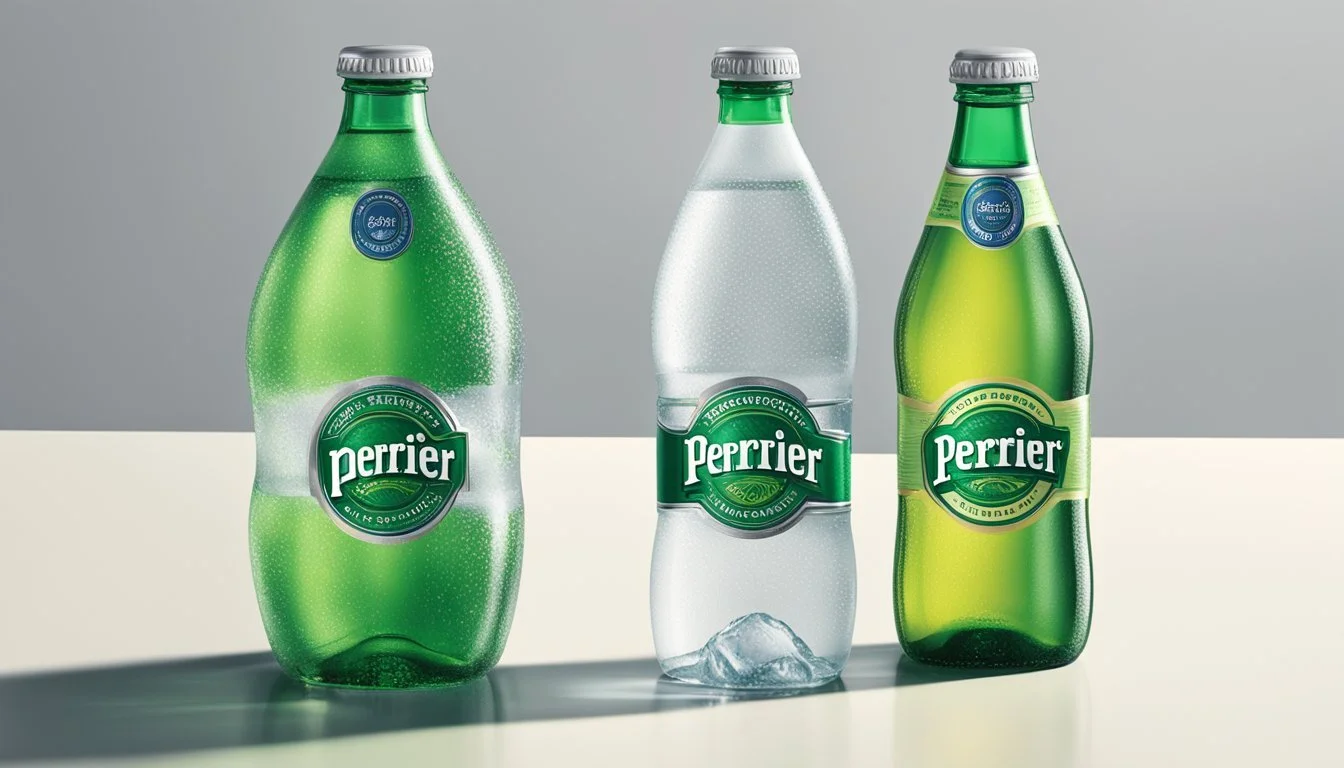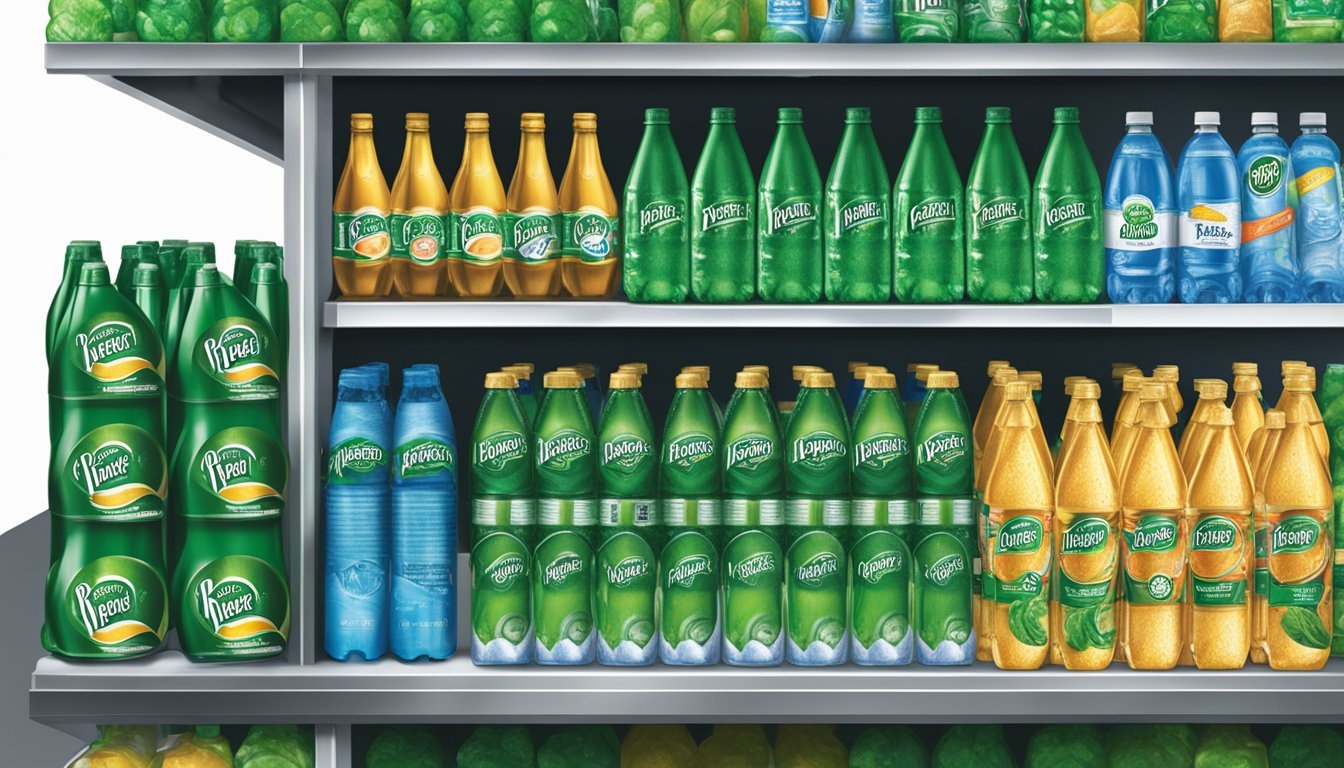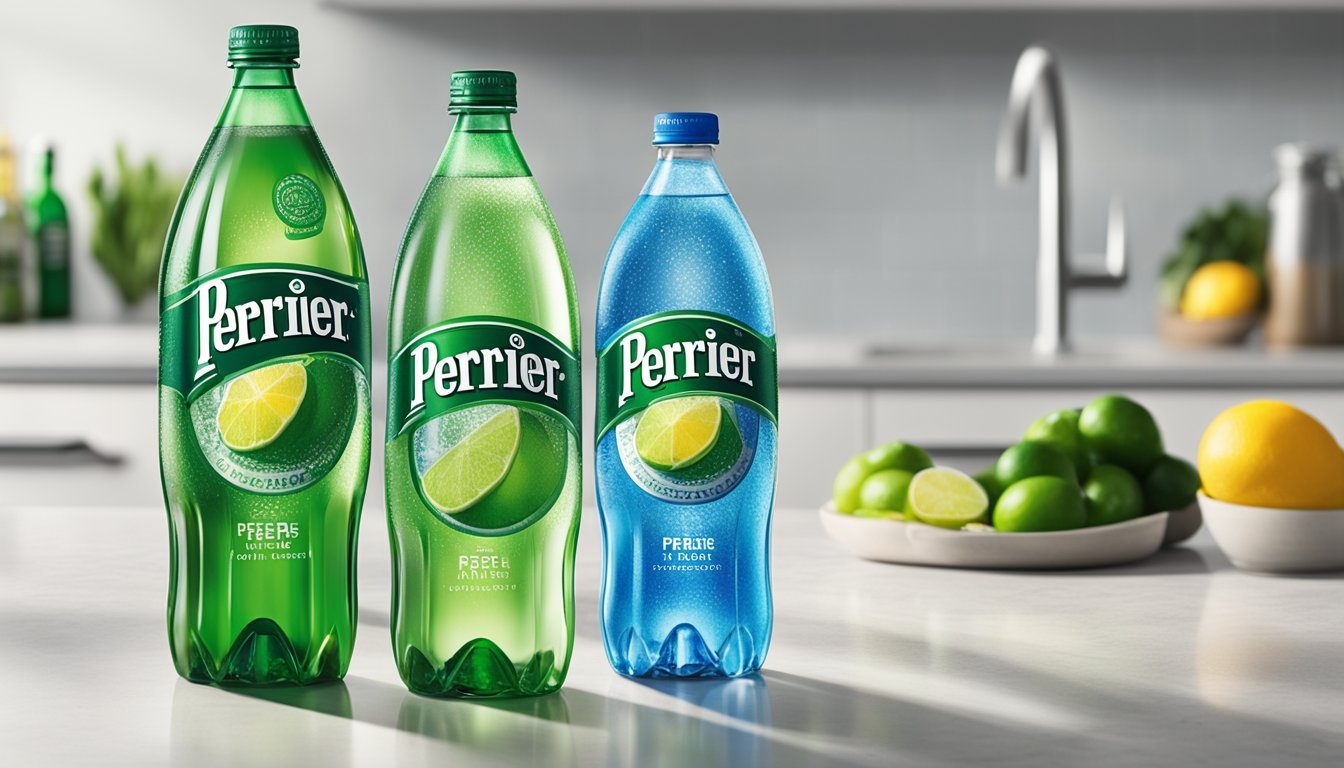Perrier vs. Kroger
Which Bottled Water is Better for Your Needs?
When it comes to bottled water, two brands often compared are Perrier and Kroger. Perrier stands out with its sparkling and naturally carbonated mineral water, sourced from Vergèze, France. Its unique effervescence and mineral content have made it a favorite for those seeking a refreshing and slightly more indulgent hydration experience. On the other hand, Kroger offers a more budget-friendly option with its purified bottled water, appealing to consumers who prioritize cost and accessibility over brand prestige.
In head-to-head comparisons, the defining characteristics of each brand become evident. Perrier's distinctive green glass bottles and crisp, slightly tangy taste emphasize its premium image and commitment to quality. Kroger, while lacking the same luxury aura, delivers consistent quality through its various bottled water options, including distilled, spring, and purified water, ensuring there is something for everyone at a reasonable price point.
For those looking for a luxurious, sparkling experience, Perrier is the clear choice. For budget-conscious consumers seeking reliable hydration without the frills, Kroger's range of options provides excellent value. This article will dive deeper into the specifics of each brand, comparing factors such as taste, price, and consumer satisfaction to help you decide which bottled water is better suited to your needs.
Understanding Bottled Water
Different types of bottled water are available, each offering unique characteristics. Strict regulations ensure the safety and quality of these products.
Different Types of Bottled Water
Bottled water can be categorized in multiple ways, with each type catering to different preferences and needs. Mineral water contains natural minerals from its source. Perrier, for example, is a well-known mineral water that includes trace elements of calcium and magnesium.
Sparkling water, also known as carbonated water, has been infused with carbon dioxide gas. The carbonation process gives it a fizzy texture, which some people enjoy. Brands like Perrier are popular in this category.
Non-carbonated bottled waters such as Kroger bottled water do not go through the carbonation process. They are typically preferred for their plain taste and are often used for hydration without any added bubbles.
Bottled Water Regulations and Standards
Bottled water must comply with strict regulations to ensure it is safe for consumption. In the United States, the Food and Drug Administration (FDA) regulates bottled water, ensuring it meets specific safety and quality standards.
International Bottled Water Association (IBWA) sets additional guidances that many companies choose to follow for higher quality. This includes standards for sodium content, source verification, and contamination checks.
Concerns about contaminants, such as microplastics or chemicals like PFAS, have led to more rigorous testing and bottle labeling. Many bottles are manufactured BPA-free to address health concerns. Despite stringent regulations, the manufacturing process and environmental impacts are significant considerations for consumers.
The Brands in Focus
This section provides a detailed look at the Perrier and Kroger brands, emphasizing their origins, water sources, and key characteristics. Readers will gain a clear understanding of both the sparkling mineral water legacy of Perrier and the practical, grocery-store-based offerings of Kroger.
Perrier: A Sparkling Legacy
Perrier, a brand known for its premium sparkling mineral water, originated in Southern France. The water is sourced from a naturally carbonated spring in Vergèze, ensuring the unique effervescence for which Perrier is famous. This brand has built a reputation on its fine bubbles and crisp taste.
Perrier's iconic green bottle and sophisticated image have made it a staple in upscale restaurants and homes. The brand emphasizes purity, with their water undergoing minimal processing to retain natural minerals. Available in various flavors like lime and grapefruit, Perrier offers both versatility and luxury in the sparkling water market.
Kroger: Grocery-Store Giant's Offer
Kroger, a mainstream grocery-store brand in the United States, offers a range of bottled water products. Unlike Perrier, Kroger's bottled water is generally sourced from municipal supply, which is then purified using techniques such as reverse osmosis. This ensures the water is safe and meets FDA standards.
Kroger bottled water is typically sold at a lower price point, making it accessible for everyday use. The brand's commitment to quality and affordability includes options such as purified water, spring water, and distilled water, catering to various consumer preferences. With BPA-free bottles and increasing awareness of environmental impacts, Kroger continues to adapt to consumer needs.
Product Comparison
When comparing Perrier and Kroger bottled water, it is crucial to examine their taste profile, health and nutrition factors, packaging and environmental impact, and price point analysis. Each brand has its unique characteristics and benefits which will be discussed in detail.
Taste Profile
Perrier is renowned for its refreshing and crisp taste, characterized by strong carbonation that delivers a burst of bubbles. This makes it a favorite in the sparkling water category. It is often favored for its clean mineral undertones, free from any aftertaste.
Kroger water, on the other hand, tends to have a more mild taste. Some variations of Kroger’s bottled water include purified and spring options, which may lack the effervescence found in Perrier but deliver a clean and neutral taste suitable for everyday hydration.
Health and Nutrition Factors
Perrier contains naturally occurring minerals such as calcium and magnesium, which can contribute to daily nutrient intake. It is free from sugars and calories, making it an excellent choice for those seeking a healthy beverage.
Kroger bottled water is typically purified or spring water. It generally does not contain added minerals or nutrients. Both brands offer products with no calories or sugars, but Perrier's natural mineral content can offer slight health benefits. Sodium levels in Perrier are minimal and comparable to many standard bottled water options, ensuring it remains a health-conscious choice.
Packaging and Environmental Impact
Perrier is often available in distinctive green glass bottles and aluminum cans. Glass bottles are recyclable but heavier, which may impact transport emissions. Aluminum cans offer widespread recyclability and lighter weight.
Kroger bottled water is commonly sold in plastic bottles. While PET plastic is recyclable, plastic waste remains a significant environmental concern. Kroger has been working to enhance the sustainability of their packaging, but glass and aluminum options, like Perrier's, typically have a lower environmental footprint when properly recycled.
Price Point Analysis
Perrier tends to be a premium product, reflected in a higher price point. Its cost is justified by the brand's reputation, packaging quality, and sparkling water category placement. Consumers seeking a luxury experience may find Perrier worth the price.
Kroger bottled water is more budget-friendly. It often comes in large multi-packs at a lower cost per unit. Despite being less costly, it provides a reliable and accessible hydration option, making it popular among budget-conscious consumers.
Both Perrier and Kroger offer distinct advantages depending on the consumer's priorities, whether it’s taste, health benefits, environmental impact, or cost.
Market Presence and Consumer Perception
Perrier and Kroger's bottled water brands have distinct market presences and consumer perceptions. This section will focus on their brand reputation, historical significance, and customer reviews.
Brand Reputation and History
Perrier is a well-known carbonated mineral water brand with a rich history dating back to 1863. Originating from France, it is often associated with luxury and health-conscious consumers.
Kroger, while primarily known as a large retail chain, offers its own bottled water under various private labels. These brands leverage Kroger's extensive distribution network.
Consumer Reports often highlight Perrier for its unique taste and consistent quality. In contrast, Kroger's bottled water is recognized for affordability and accessibility. Both brands maintain strong market positions but cater to different consumer bases.
Customer Reviews and Satisfaction
Perrier generally receives high marks in consumer reviews for its refreshing taste and premium quality. Many customers appreciate the natural carbonation and often use it as a mixer for beverages.
Kroger's bottled water garners praise for its cost-efficiency and reliability. Consumers often mention the water’s clean taste and easy availability in reviews. However, it is perceived as more of an everyday product.
Overall, satisfaction levels are high for both brands, though expectations differ. Perrier serves a niche market seeking a premium product, while Kroger aims to meet the daily hydration needs of a broader audience.
Other Considerations
Different factors beyond taste and price can influence the choice between Perrier and Kroger bottled water, such as ethical practices and brand innovations.
Ethical and Corporate Responsibility
Perrier and Kroger have distinct approaches to corporate social responsibility. Perrier is part of Nestlé, which has faced criticism for water sourcing practices but is also committed to sustainability and environmental initiatives. They aim to achieve carbon neutrality and use 100% recyclable bottles.
Kroger, a major grocery retailer, emphasizes reducing plastic waste and enhancing community support through initiatives like Zero Hunger | Zero Waste. They also focus on sourcing materials responsibly and cutting down their environmental footprint. Ethical consumption preferences might sway consumers towards brands that align with their values.
Innovative Aspects and Brand Evolution
Perrier has consistently evolved, pioneering in the sparkling water market with its unique mineral blend, high in calcium and potassium. Their flavored sparkling waters have also gained popularity, offering variety without adding sugars or additives. Perrier frequently introduces new product lines to cater to health-conscious consumers.
Kroger regularly updates its bottled water products by ensuring quality and safety standards. They offer BPA-free packaging and explore eco-friendly packaging solutions. Though primarily known for affordability, Kroger is investing in product enhancements to meet the growing demands for environmentally-friendly and health-focused options, appealing to a wide range of customers.
Conclusion
When choosing between Perrier and Kroger bottled water, several factors influence consumer choice.
Perrier offers sparkling water with a reputation for crisp carbonation and minimal flavors, often seen as a premium choice. Its mineral content can appeal to those seeking added health benefits.
Kroger bottled water, while adhering to FDA regulations, raises concerns with potential microplastics and the environmental impact of plastic waste.
In terms of taste, Perrier's subtle flavors in sparkling water elevate its status, often ranking higher in flavor and bubble quality compared to competitors.
Considerations:
Flavor Variety: Perrier provides more diverse and subtle flavor options.
Environmental Impact: Both brands face scrutiny, but Kroger faces more environmental concerns due to plastic.
Health and Safety: Perrier's natural mineral content might be a plus, whereas Kroger focuses more on meeting standard regulations.
With these points in mind, consumers need to weigh the premium attributes of Perrier against the accessible and practical aspects of Kroger.
More About Perrier
Icelandic Glacial vs Perrier: Which Bottled Water is Better?
Mountain Valley Spring Water vs Perrier: Which Bottled Water is Better?
Perrier vs Kirkland Signature: Which Bottled Water is Better?
Perrier vs Richard's Rainwater: Which Bottled Water is Better?
Perrier vs Whole Foods Italian Still Mineral water: Which Bottled Water is Better?





